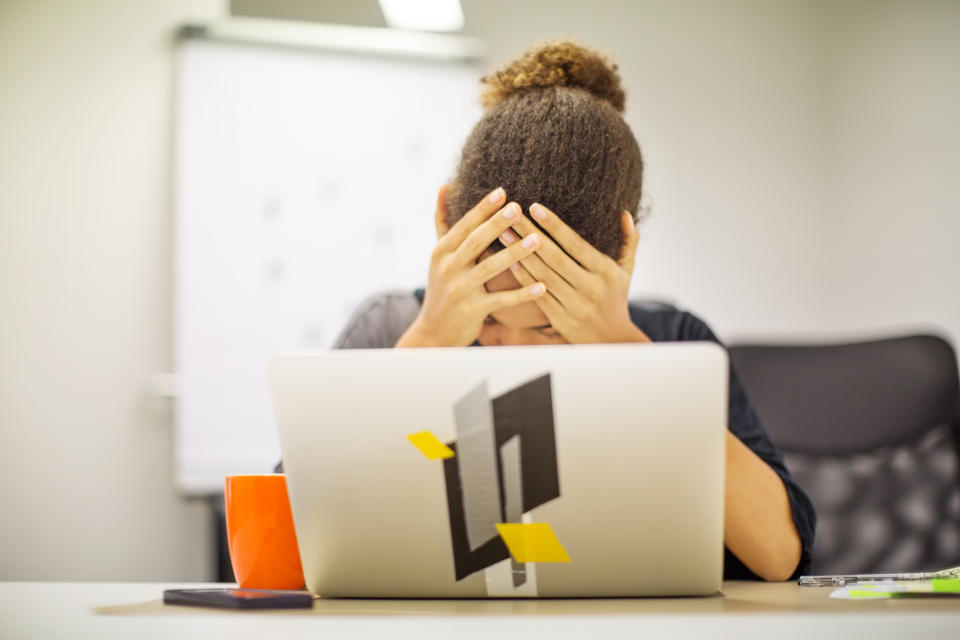Coronavirus: We want the flexibility to work from home — so why are we finding it stressful?

Before the coronavirus crisis took hold in the UK, an increasing number of businesses were embracing flexible working. Instead of the traditional 9-5 day in the office, more companies were allowing employees to choose their own hours, work from home or change their schedules to fit around childcare responsibilities.
We know the much-touted benefits of flexible working, including improving our work-life balance and avoiding wasting time on an uncomfortable commute. Research has shown that being able to work flexibly is something most of us desire in the job, with one recent survey suggesting that 58% of Brits think flexible working is the future. In fact, more than a third (35%) said they'd rather have flexible working options than a pay rise.
But as the coronavirus pandemic creates a huge shift to remote work as countries advise people to stay at home, it is an increasing source of stress.
Read more: Four ways you can reduce stress when working from home
According to a survey of more than 1,000 adults by the employee experience company Qualtrics, the majority are finding home-working stressful. Those surveyed usually worked in an office, but were now working at home because of coronavirus. The results showed 54% of people felt more stressed working from home, compared with 18% who felt less stressed. A further 52% felt more anxious working from home compared with 14% who felt less. So why are we finding it so hard?
First, trying to keep calm and carry on during a global pandemic is already stressful. People are feeling anxious about the future, worried about loved ones, unmotivated and isolated. Under normal circumstances, we would meet a friend for coffee or a glass of wine post-work to talk through any anxieties – but now, obviously, this is not possible. With this in mind, it’s hard to focus on the positives of being able to work from home.
There’s also the sudden nature of being thrown into remote working. This is the first time many people will have worked from home – and they won’t have had time to prepare. Some are working without a proper office space, or trying to get things done while looking after children or relatives. In the space of just a few weeks, our work lives and home lives have become entwined, which isn’t easy.
If you aren’t used to working from home, too, it can be hard to disconnect and switch off from work.
Read more: How to look after your mental health during the coronavirus pandemic
“The difference to work and life over the last month has been brutal,” says Jonathan Ratcliffe from flexible workspace broker Offices.co.uk. “Most of us in business have come from a vibrant, booming and highly social workplace, down to working from home in isolation. It’s a shock to the system and shouldn’t be underestimated.
“Everyone I’ve spoken with is having tough times right now. The pressures some are under are insane both financially and mentally – we need to talk to each other and know that when you have a wobble, someone is there for you – because everyone will at some point.”
It also takes preparation for employees to be able to work from home. People need a secure internet connection and they need to be equipped with basic tools – such as a decent laptop or tablet – to be productive.
Remote working can also make communication more of a challenge, so businesses need to ensure workers have access to the apps and platforms they need to be able to stay connected. But with the sudden onset of the coronavirus outbreak, many are working at home in less-than-ideal circumstances – for example, with weak internet or a slow computer.
Another crucial factor is that not everyone wants to work from home. Some people thrive in a quiet, solitary environment, although even they may be pushed to their limit during the lockdown. Others love the social aspect that comes with working in an office surrounded by other people – and struggle when forced into isolation.
“Many of my colleagues love their business life because it’s so sociable, but now we are isolated from that social network, and it’s tough times for everyone,” Ratcliffe says. “It’s important not to under-estimate the stress of the current situation.”

 Yahoo Finance
Yahoo Finance 
